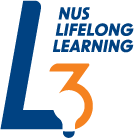Objectives
To realise the full potential of artificial intelligence, an agent (be it a piece of software or a robot) need to be able to adapt and continuously learn. These learning could be in to form of trial and error, observing an expert or by contemplation (self-play).Reinforcement learning (RL) is the area of machine learning where agents learn to take actions in an environment so as to maximize some notion of reward. An example of this might be an autonomous robot vacuum (agent), learning and mapping an optimal path in a condo (taking actions in an environment) using the least amount of time and battery (maximizing the reward).RL is typically associated with playing games such as chess, backgammon and more recently Go (see AlphaGO) and DOTA (see OpenAI Five). However RL has real-world applications where the environment is stochastic (uncertain); these include planning, resource scheduling, prescribing treatments, managing inventories and others.
Who Should Attend
It is applicable for professionals engaged in the following areas:Data scientistData analyticsSoftware engineer
Entry Requirements
Python knowledge is strongly desirable, participants with no prior Python knowledge is encouraged to attend Python for Data, Ops and ThingscourseParticipant who have successfully completed Data and Feature Engineering for Machine Learning courses or have equivalent knowledgeParticipant are required to pass a pre-course assessment to ensure that they have the requisite background knowledge to learn the material.Participant should have a basic understanding of linear equation, simple matrix operations and probabilities
| ** |
|
Please note that the mode of delivery is subject to change in light of the COVID-19 situation.
Courses marked ‘online’ may have compulsory face-to-face sessions such as laboratory or hands-on components and details should be sought from the schools or departments before learners register for them.
|
Last updated: 12 April 2024


